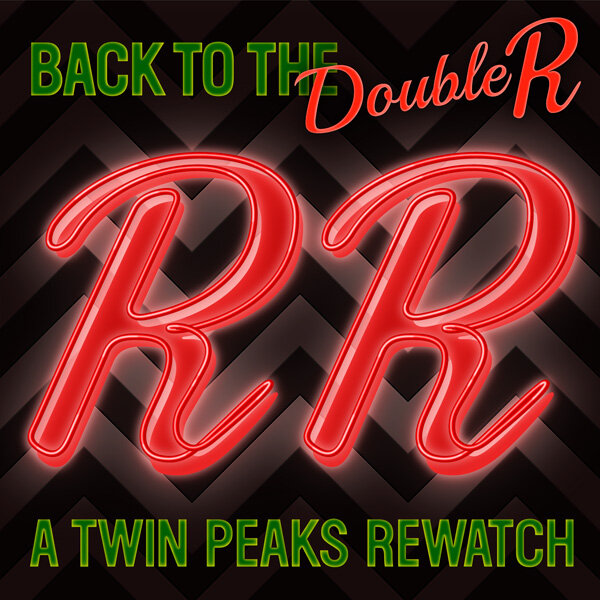I (Heart) Bobby Briggs
art by Jonathan Pérez
NOTE—This article contains **SPOILERS** through Twin Peaks Season 2 Episode 9 “Arbitrary Law” and some content from The Secret Diary of Laura Palmer
Twin Peaks is a child of many genres, including teenage melodrama. With the murder of teenaged Prom Queen Laura Palmer (Sheryl Lee) as the impetus for the action of the show, it’s only natural that teenaged characters make for a strong narrative thread.
Mark Frost and David Lynch present us with a dramatis personae of teenage types. Donna (Lara Flynn Boyle) is the Best Friend. James (James Marshall) is the Loverboy. Shelly (Mädchen Amick) is the Girl Who Loves Bad Boys. Audrey (Sherilyn Fenn) is the Lolita. Bobby (Dana Ashbrook) is ostensibly our Bad Boy, but perhaps not is all as it seems (just like everything in Twin Peaks). I’ll posit that of the teen characters in Twin Peaks it is Bobby who exhibits the most growth.
The episode where I realized Bobby is going to be a far deeper character is the fourth of Season One, “Rest in Pain”, which centers around the funeral for Laura Palmer. Heretofore, Bobby has been exactly what we expect of him—the Bad Boy. He is the initial suspect in the murder, he’s dealing drugs, he’s having an affair with a married woman and for lack of a better but no less accurate term—Bobby is quite unlikeable. He could also easily be the Privileged Jock Asshole. But we learn more. A conversation where Bobby rejects all efforts from his father (Don S. Davis) to connect and empathize with his son in a time when Bobby could certainly use some comfort reveals the depth of his pain. This pain explodes at the funeral service, when Bobby acts out, claims the whole town is culpable in Laura’s murder (he might not be wrong there), and initiates fisticuffs with James. It all seems like a bit of classic Emo Kid teenaged moodiness but then you realize that Bobby is also right to feel like he does. He did know more sides of Laura than she presented to the town. They did have a long-term and sexually active relationship. Perhaps he is even a little justified in his jealousy toward James. It all shows that Bobby is a character in pain. He is still grieving Laura, and he is barely equipped to deal with his tumultuous feelings. This is only reinforced when you learn more about Bobby, especially as he is written in The Secret Diary of Laura Palmer.
I love that Dana Ashbrook gives Bobby a toughness and smug indignation (again Bobby is often not wrong, even when he is being a jackass) but isn’t afraid to also shade Bobby with moments of deep vulnerability that show there is still a scared kid under that well earned bravado.
I love too how the show doesn’t give up on the relationship between Bobby and his parents, especially with his father. Major Garland and Betty Briggs (Charlotte Stewart) and their son are completely mismatched. It helps that—in what must be a deliberate detail—in no way would anyone think Davis plus Stewart equals Ashbrook. This is not meant to suggest that Bobby is adopted, but a radical visual difference between parents and children. Some ice is broken—albeit awkwardly—between the Briggses in a family counseling session with Dr. Jacoby (Russ Tamblyn). And then, a few episodes later, a real breakthrough.
Bobby and the Major are dining together at the Double R, when father tells son about a vision he has of Bobby as adult, completely at piece. Major Briggs says he awakened from the dream with a feeling of optimism and hope, and he wishes his son nothing but happiness. It’s a lovely moment where a father is displaying complete openness to his son. When Bobby hears his father say these things about him, he knows it is coming from an authentic place of love. This speech doesn’t turn Bobby completely around, but it gives the character a glimpse of a potential future that is out there to be earned.
With that, I am also invested in the character of Bobby Briggs. The subplot concerning Bobby’s growth and maturation is an important counterpoint to the main action surrounding the murder of Laura Palmer. Look at how parental love shaped the narratives of both Bobby and Laura. Bobby’s relationship with his parents represents a functional and loving relationship; the Palmers are the opposite.
It’s this richness of character which makes Bobby Briggs so eternally compelling. Will he live up to the promise of his father’s vision?


